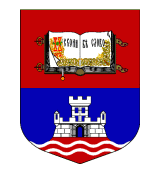The success of our researchers - a paper published in Nature Materials
In cooperation with the group of Dr. Vojislav Stamenković, from the "Argonne National Laboratory - Material Science Division," our colleague Dr. Dušan Tripković published the paper "Eliminating Dissolution of Pt-based Electrocatalysts at the Atomic Scale" in the prestigious scientific journal Nature Materials (Nature Materials, 2020, 19, 1207-1214, DOI: http://dx.doi.org/10.1038/s41563-020-0735-3, IF2019=38.663).
Solving the problem of stability of catalysts used in fuel cells is a long-standing challenge for many researchers in this field. The paper presents a new approach in solving the stability problem of Pt catalysts, i.e., how to prevent the dissolution of Pt at the atomic level leading to a decrease in catalyst activity. The problem is approached from two sides: protection of Pt catalysts by using thin gold films, which protects low-coordinated active sites on the platinum surface and second, deposition of platinum on the already existing gold film that leads to a significant increase in the ratio of 111 plane, which is the most stable orientation in the oxygen reduction reaction. As this reaction represents the largest energy loss in fuel cells, it is also the main obstacle to the full commercialization of this technology. Using both methods, a 3 nm Pt3Au / C catalyst was obtained in which platinum dissolution was almost eliminated, and thus the obtained catalyst was 30 times more stable compared to the commercial 3 nm Pt / C catalyst.
The paper can be read on the publisher's website. The article is also available in the ICTM's institutional repository (published version and peer-reviewed version).
Congratulations to our colleagues, and we wish them much success in their further research!








